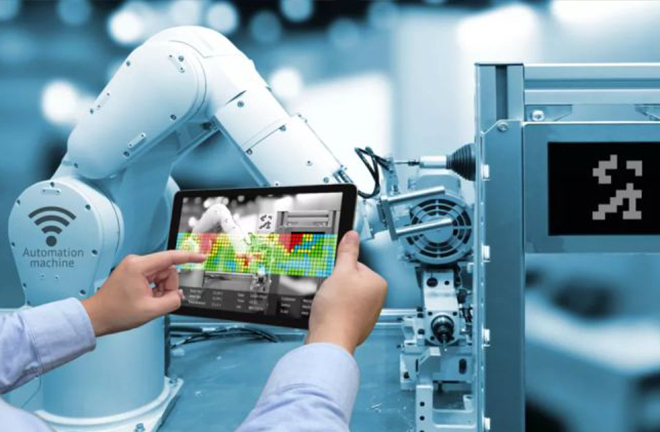
FILE PHOTO: Nowadays, intelligent technologies are increasingly applied in production, assembly, distribution and other economic activities.
Intelligent technologies include electronic tools, systems, devices, and resources that generate, store, process, exchange, or use intelligent data. With wide applicability, intelligent technology is considered to be a technology with high potential to improve existing technologies. Currently, intelligent transformation is permeating and reconstructing many links of economic activities such as production, distribution, exchange, and consumption. In light of the great potential of intelligent technologies, transformation in this sector has wide and profound impacts on the labor market.
Changes in labor demand
Intelligent transformation brings a change in labor demand. First, intelligent transformation brings changes in the demand for labor skills. According to The World Development Report 2019: The Changing Nature of Work released by the World Bank, the importance of three skillsets is growing in the labor market. These respectively are: advanced cognitive skills such as the ability of complex problem-solving; sociobehavioral skills such as teamwork; and skill combinations that are predictive of adaptability such as reasoning and self-efficacy. Cultivating these three skills requires greater investment in human capital by governments, enterprises, and individuals.
Second, the intelligent transformation constantly reshapes labor demand, which is reflected in work itself changing. Substitution effects will be produced as intelligent technology reshapes human work, where a certain kind of human work is completely or partially replaced by artificial intelligence (AI), or transformed into a new form of work. That means some jobs are disappearing, others are changing, and still others are being created. But either scenario raises the prospect of major career changes for the workforce involved. As the McKinsey Global Institute notes, changes in work brought about by automation could affect as many as 375 million people, or about 14 percent of the global workforce by 2030.
Challenges for labor supply
The next transformation is about challenges posed to labor supply. First, the impact of intelligent transformation on labor supply is mainly reflected in increased labor pressure. On the one hand, impacted by AI’s substitution effect, the workforce will face direct competition with machines for survival in the future, which will lead to its increased work pressure, and the workforce’s health status needs to be highly monitored.
On the other hand, when some links in the production process improve production efficiency given intelligent transformations, the efficiency of laborers in other links in the same production process will also need to be improved, and their work pressure will also increase. Second, intelligent transformation also demands higher requirements for education, and lifelong learning, which will become the norm.
Today, transformations that come with intelligent technologies are redefining the skill requirements of the labor market. In order to remain competitive in AI-assisted jobs, it is imperative that the workforce acquires necessary skills through school education or vocational training. In the context of continuous advances in AI technology, workers of all skill levels need to maintain the habit of lifelong learning and constantly acquire new skills to avoid being weeded out from the labor market.
Changes in labor market environment
Intelligent transformation also causes changes in labor market environments by challenging traditional production modes and bringing more economic opportunities. The development of intelligent technologies is now giving rise to an increasing number of services, which are obtained from the labor market that extends beyond enterprises. The rise of the gig economy is an example of this, which is different from traditional production processes. Platform businesses typically generate value by creating network effects that connect customers and producers. The rise of platform markets has allowed technologies to reach more people faster than ever before. Individuals and businesses can thus trade goods or services online with a broadband connection. Meanwhile, intelligent technologies provide digital services that can be replicated at low or no cost and can be used by many people without affecting each other.
Hu Yinyan is an associate professor from the Master of Public Administration Education Center at Hebei University of Technology.
Edited by BAI LE

